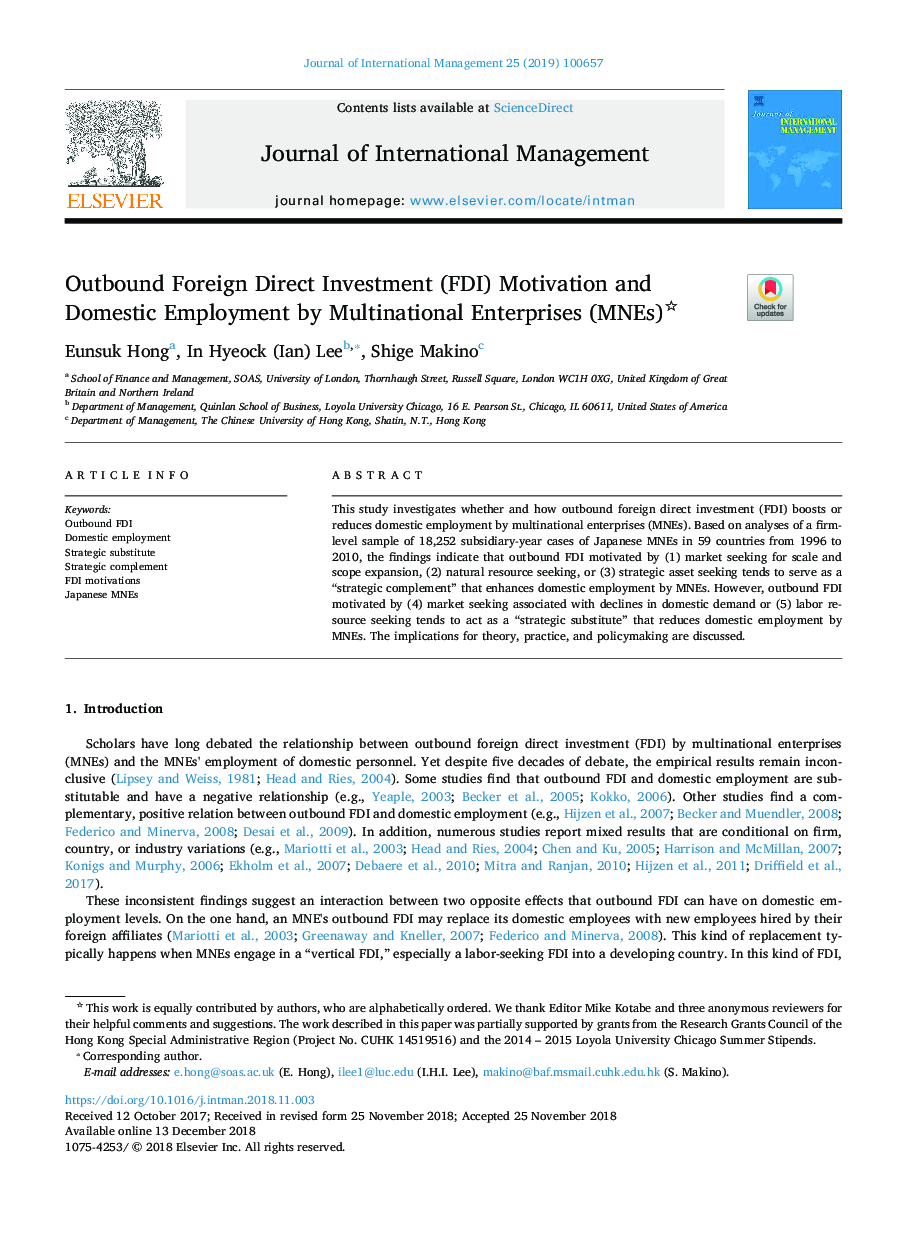| Article ID | Journal | Published Year | Pages | File Type |
|---|---|---|---|---|
| 13463859 | Journal of International Management | 2019 | 22 Pages |
Abstract
This study investigates whether and how outbound foreign direct investment (FDI) boosts or reduces domestic employment by multinational enterprises (MNEs). Based on analyses of a firm-level sample of 18,252 subsidiary-year cases of Japanese MNEs in 59 countries from 1996 to 2010, the findings indicate that outbound FDI motivated by (1) market seeking for scale and scope expansion, (2) natural resource seeking, or (3) strategic asset seeking tends to serve as a “strategic complement” that enhances domestic employment by MNEs. However, outbound FDI motivated by (4) market seeking associated with declines in domestic demand or (5) labor resource seeking tends to act as a “strategic substitute” that reduces domestic employment by MNEs. The implications for theory, practice, and policymaking are discussed.
Related Topics
Social Sciences and Humanities
Business, Management and Accounting
Business and International Management
Authors
Eunsuk Hong, In Hyeock (Ian) Lee, Shige Makino,
